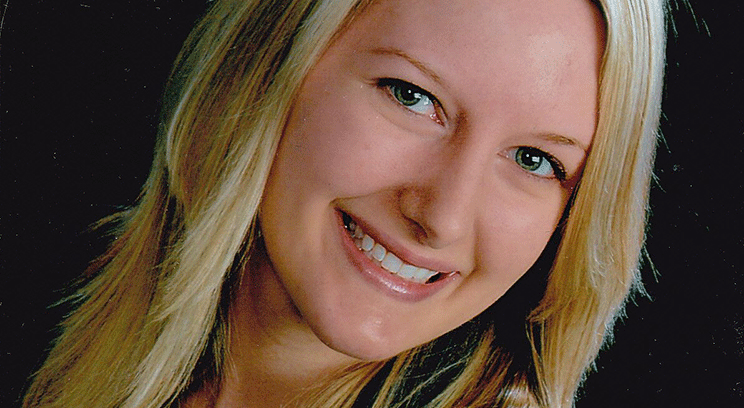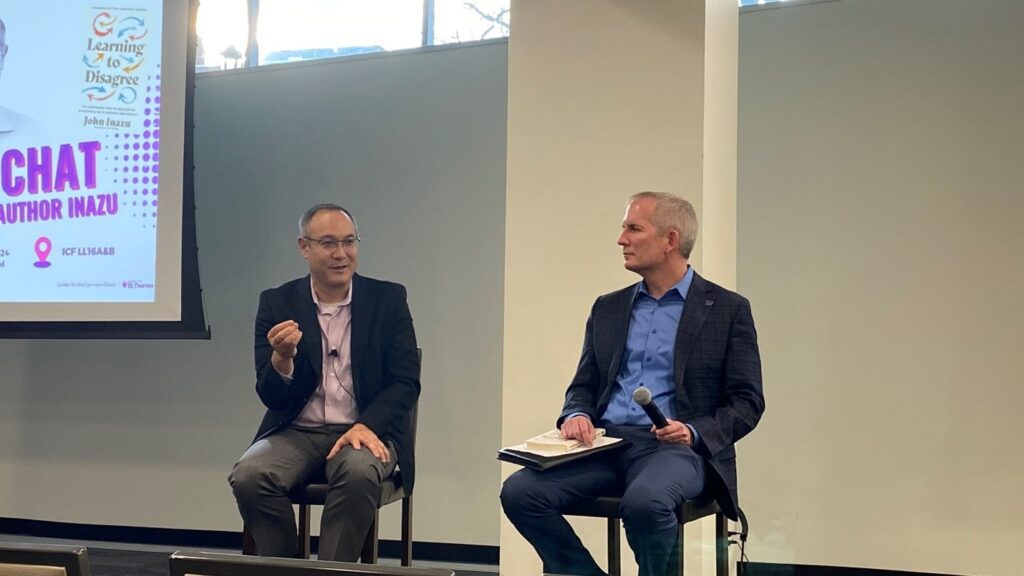This post originally appeared on True to You: A Revolutionary Way to Transform Your Life.
My path through the legal profession has been unconventional. Thinking about it in the context of UST School of Law's mission raises other questions: How has doing what's right and what's smart helped me to navigate a profession in which defeated, depleted, depressed, and/or addicted attorneys are commonplace to have joy and purpose in my own practice? How have I centered my practice on serving my clients rather than showcasing me? How did I grow a solo practice right out of law school in an unfriendly practice area? The deceptively simple answer is that I did what was right, even when it was hard.
Blazing within me is a call to enact social change. It showed up early, and I did my best to honor it. At 11, I was the last girl left on the co-ed baseball team. After I refused to quit, the coach removed me from the roster and told me to go play softball with the other girls, where I belonged. This didn't sit well with me. My gender was not a legitimate reason why I couldn't do something. I made it on base more often than the boys, and worked as hard.
One boy on the team had detonated the forbidden "f-bomb." This was very big deal. Another boy had thrown a bat in anger that had connected with the right shin of the other team's coach. Both boys had spent time on the bench. Yet they had remained on the team. The coach had booted me off for my offense: being a girl.
My brother, Dan, continued to play on the baseball team and hated it. I went on strike from softball and played Dan's favorite sport: soccer. My parents had two unhappy kids that summer. Dan and I proposed a creative solution: swap us. Neither Dan nor I minded being the only boy or girl. We just wanted to play. But the rules kept us out, and we were powerless to change them.
I appealed to those who had power: the grownups.
Whenever my parents took me to watch Dan play baseball, I pled with the coach to let me back on the team. When that failed, I tried a new approach. I went from parent to parent on the bleachers, and asked, "Did you know that they won't let me play because I'm a girl? That's not fair! Will you sign this piece of paper saying you want me to play?" They gave me hand pats and smiles, head shakes and laughs. No signatures. My petition flopped. I had a lousy three signatures (one for each Berg kid).
I returned to where my mother sat and yelled toward the dugout, "Let girls play!"
"Rita Theresa, be quiet or you're going to have to leave. You're disrupting the game."
"Yeah, Mom, that's the point. I'm starting a riot! LET GIRLS PLAY!"
Mom sent me to the car.
I went on to join softball and made the most of it. The inner guidance system that urged me to do something when faced with injustice never went away. And it has served my clients well. Any competent lawyer can make a case. The attorney who stays focused on doing what's right for her client while she makes that case can make a difference.
To make a difference, I had to be willing to shatter the Mr. Defender model in criminal defense and take a different approach to growing a professional practice. Early on, my own experiences with my fellow defenders showed me why potential clients were quick to seek out my emotionally intelligent, client-centered practice. One Mr. Defender told me I was "too pretty to defend criminals." Another Mr. Defender, upon hearing I'd opened a second location, this one on his well-established turf, said, "If there's a cross burning on your front yard tomorrow morning, you'll know where it came from." And yet another Mr. Defender told me, "It's the way it's done in defense, and if you can't deal with it you better get out." When I later challenged this attorney for sexist speech at my law practice, he said, "I'm going to say whatever I want to say, whenever I want to say it, wherever, to whoever!"
When told to deal with the culture or go do something else, where I belonged, my inner guidance system flashed and blinked. The Mr. Defenders were wrong. By integrating faith (doing the right thing) and reason (doing the smart thing) into my professional practice, I discovered there's a high demand for emotionally intelligent, client-centered representation. I stayed focused on my clients. Even when the other defenders preferred that I get kicked off the team, I claimed my rightful place and kept swinging for the fences.
Rita Johansen '11 trains, speaks and writes on topics surrounding how professionals can embrace what makes them unique, build their lives around who they are and show up to serve others. She authored True to You: A Revolutionary Way to Grow Your Professional Practice.







